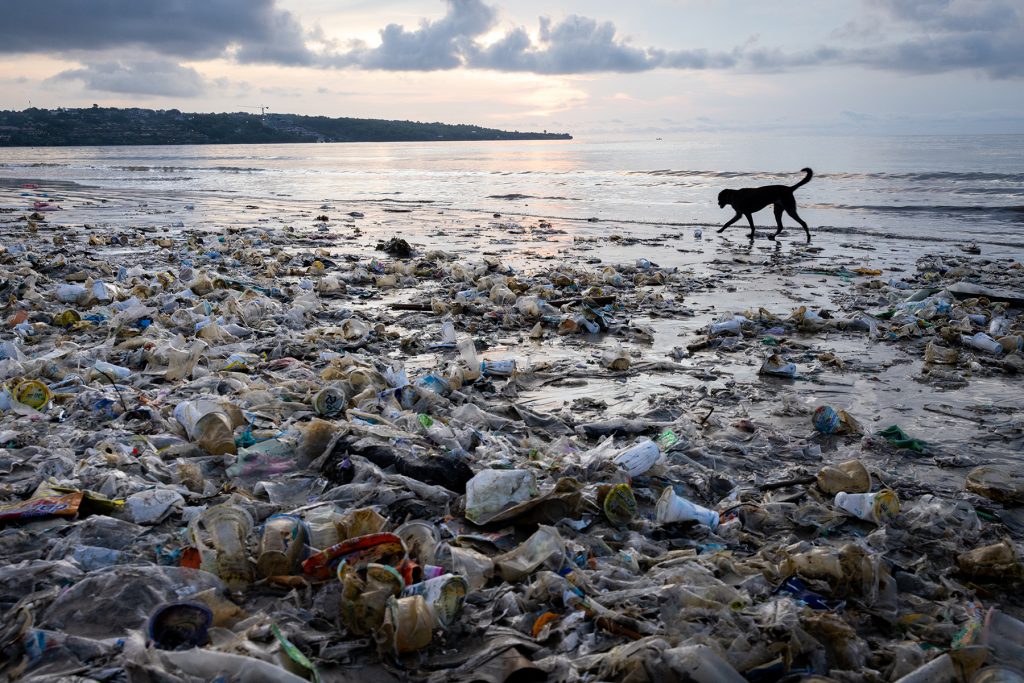In January 2025, the beaches of the popular holiday destination of Bali were inundated with knee-high deep waves of plastic waste.
The rainy season flushes Indonesia’s polluted rivers, depositing millions of tonnes of plastic waste into the oceans, which in turn washes up on the country’s beaches. In recent years, the waves of pollution have intensified, but 2025 was been called the “worst year yet” by locals.
Tourists and locals walk along the polluted beaches, tiptoeing through the waste and around dead and lifeless bodies of marine life, including fish and sea turtles.
According to the United Nations Environment Program, “with a population of 250 million, Indonesia is the fourth most populous country and second-largest plastic polluter in the world after China. The country produces 3.2 million tonnes of unmanaged plastic waste a year, of which about 1.29 million tonnes ends up in the sea.”
After hearing of this breaking news event, I travelled to Bali to document this environmental crisis, liaising with local NGO, Sungai Watch. This innovative grass roots organisation uses social media to mobilise local people to take part in mass clean-ups when the plastic waves descend on the island’s beaches. They are also involved in permanent recycling activities, removing plastic from the country’s rivers and mangroves through the use of technologically advanced barriers.
Bali is now one of the most popular tourist destinations in all of Asia with over 16 million people visiting in 2024. The small island struggles to cope with the plastic produced by the industry that supports its economy. As the numbers of visitors increase, so does the waste.
Bali currently acts as a stark warning, a canary in the coal mine, for the global plastic crisis and the challenges associated with plastic production, use and disposal.
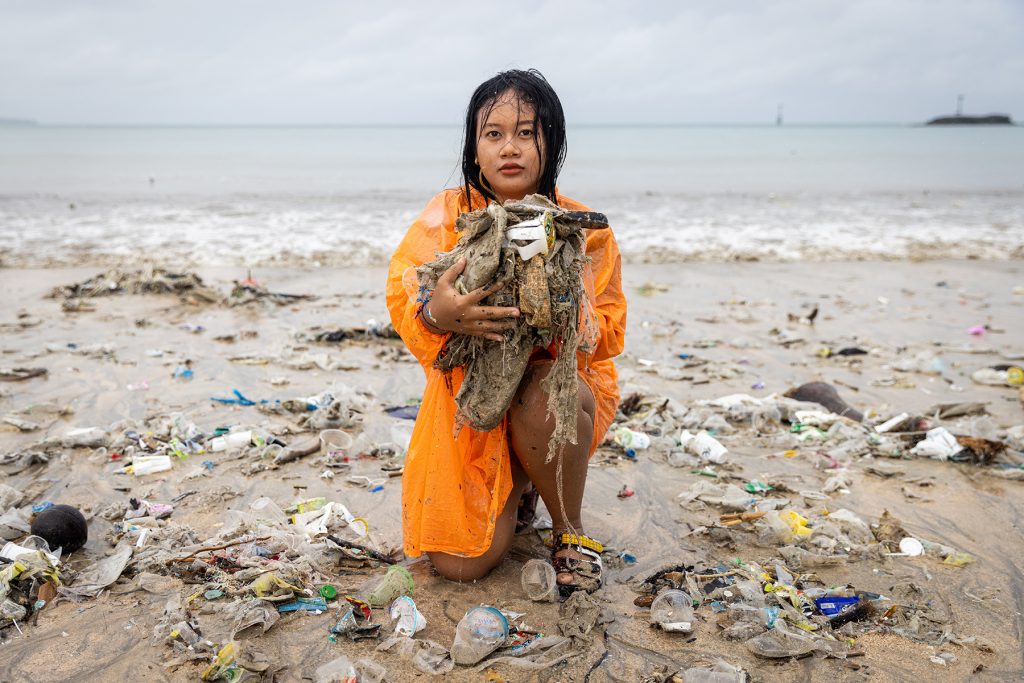
Bali - Plastic Paradise 1
Meli Emerte, a volunteer with the Bali-based NGO Sungai Watch, takes part in a clean up of plastic waste on Kedonganan Beach.
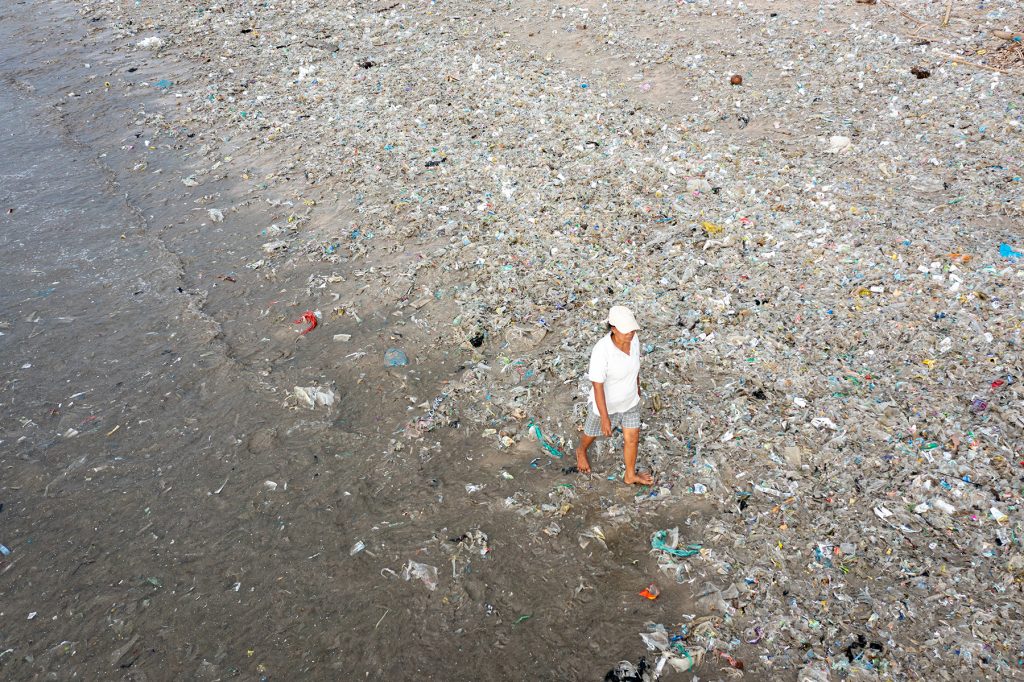
Bali - Plastic Paradise 2
A local person takes a stroll along Jimbaran Beach in Bali, after a mass plastic pollution event.
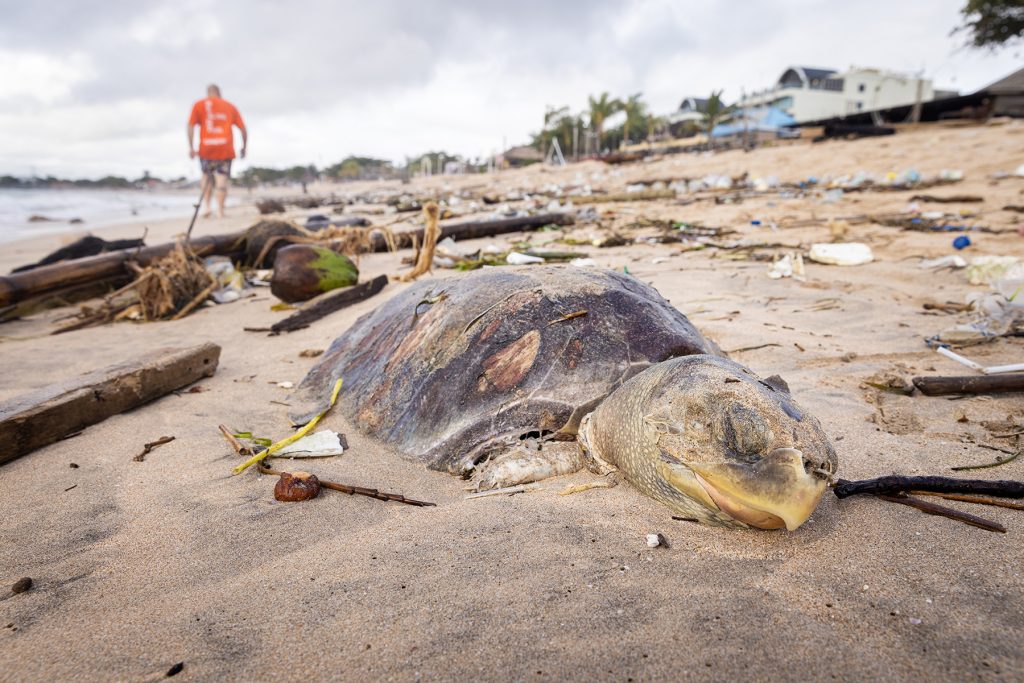
Bali - Plastic Paradise 3
A dead sea turtle lies on Kedonganan Beach in Bali, Indonesia. According to the World Wildlife Fund, “research suggests that 52% of the world’s turtles have eaten plastic waste. The reasons are simple: a floating plastic bag can look like a lot of jellyfish, algae, or other species that make up a large component of the sea turtles’ diets…Entanglement in abandoned fishing nets can easily kill them through drowning.”
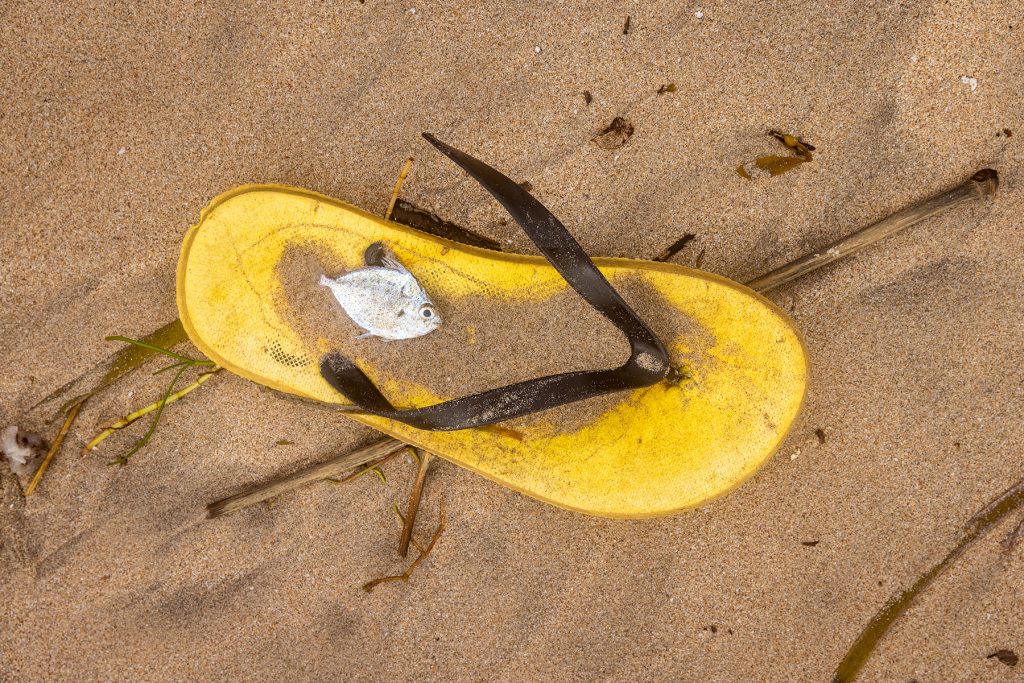
Bali - Plastic Paradise 4
Amid the warm sand, fish of all sizes lie lifeless, entwined with plastic straws, bags, and fragments of human detritus. They are washed up daily with the latest ‘plastic tide’.
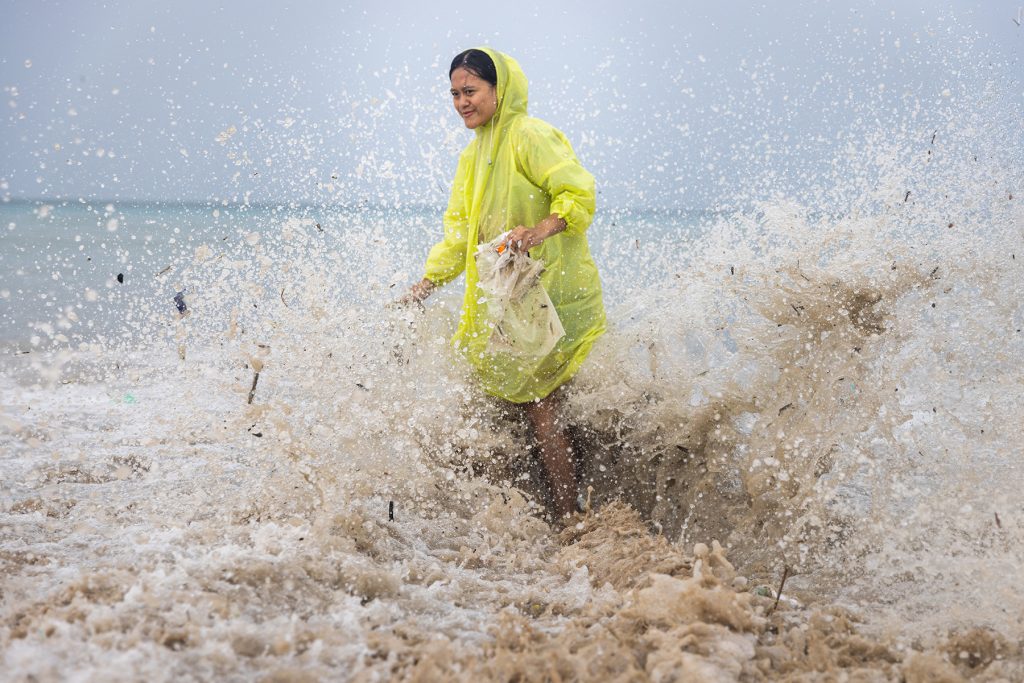
Bali - Plastic Paradise 5
A volunteer is hot my large waves as she takes part in a clean-up activity on Kedonganan Beach in Bali, Indonesia.
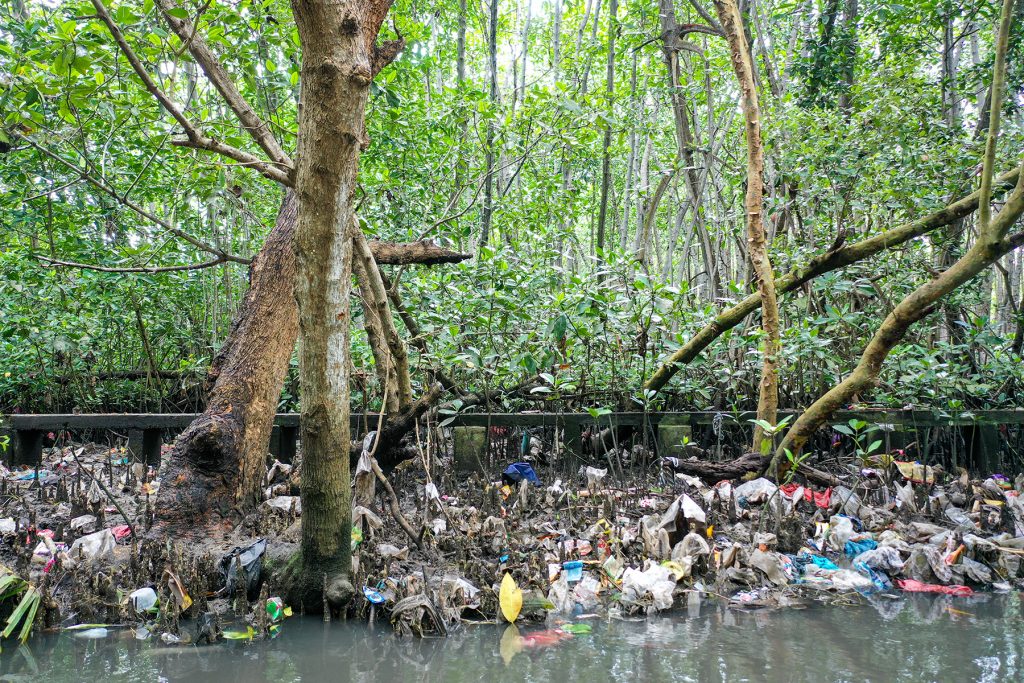
Bali - Plastic Paradise 7
Plastic waste is caught in the mangroves of central Bali, Indonesia. As the rainy season flushes Indonesia’s polluted rivers, the waste travels downstream and becomes trapped in the mangroves before entering into the sea.
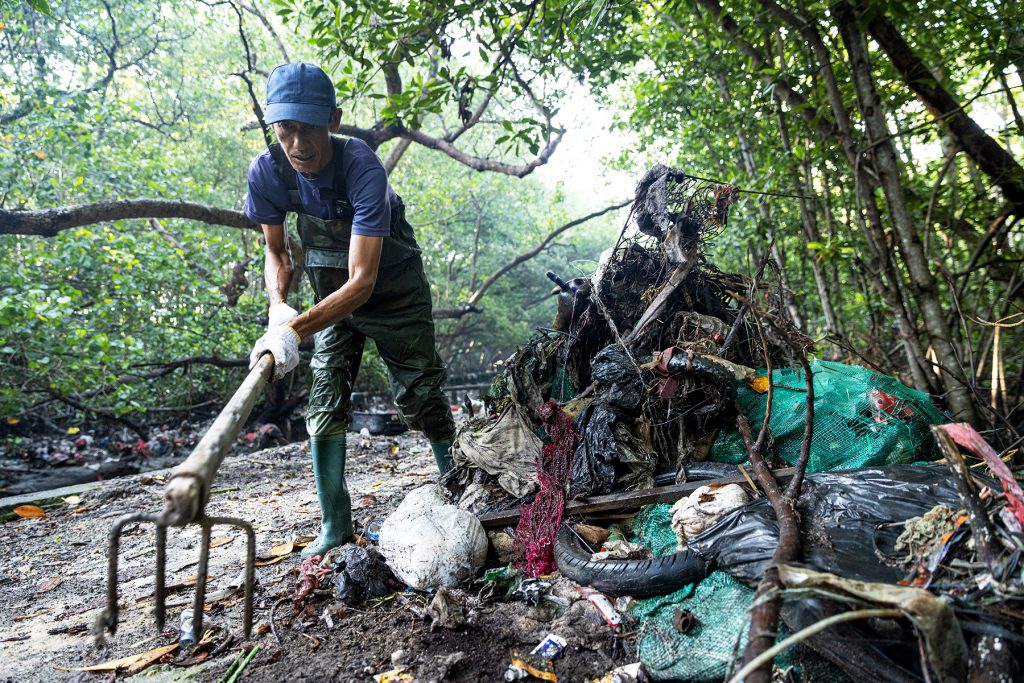
Bali - Plastic Paradise 8
A member of the NGO, Sungai Watch, cleans up plastic waste collected during a clean up in the mangroves of central Bali, Indonesia. The rainy season flushes Indonesia’s polluted rivers, depositing millions of tonnes of plastic waste into the oceans which washes up on the country’s beaches and gets trapped in the mangroves.
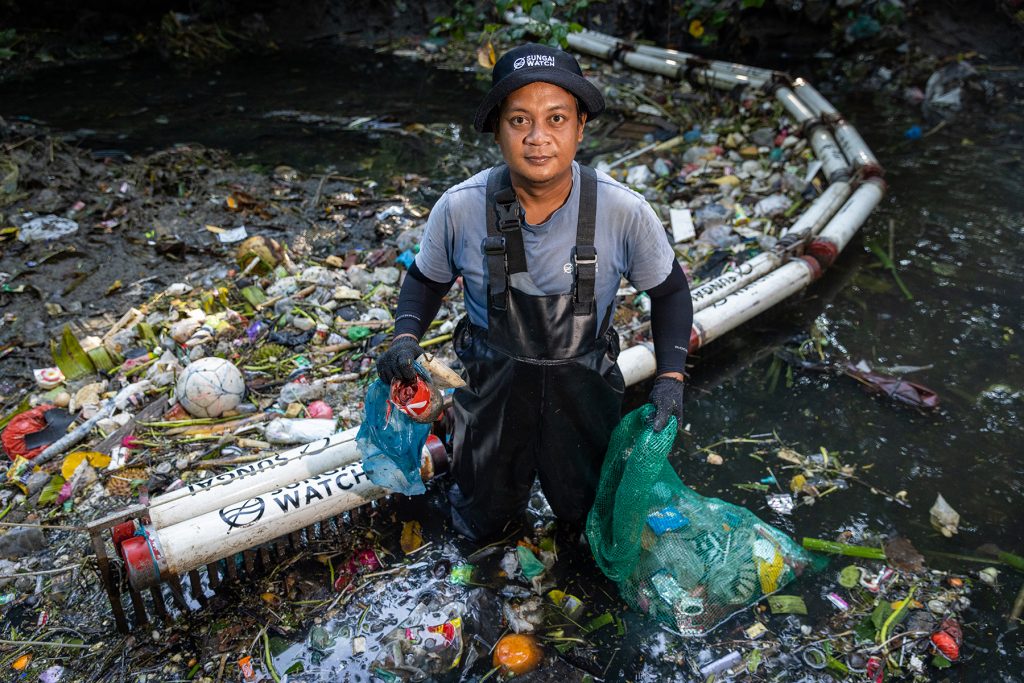
Bali - Plastic Paradise 9
Komang Juniawan, stands at a waste collection barrier in the mangroves of central Bali.
He is a member of Sungai Watch, an organisation whose mission is “to stop plastic pollution from going into the ocean through barriers and community cleanups.”
The challenge they face is monumental, as Bali struggles with a plastic crisis that is overwhelming the popular tourist island.
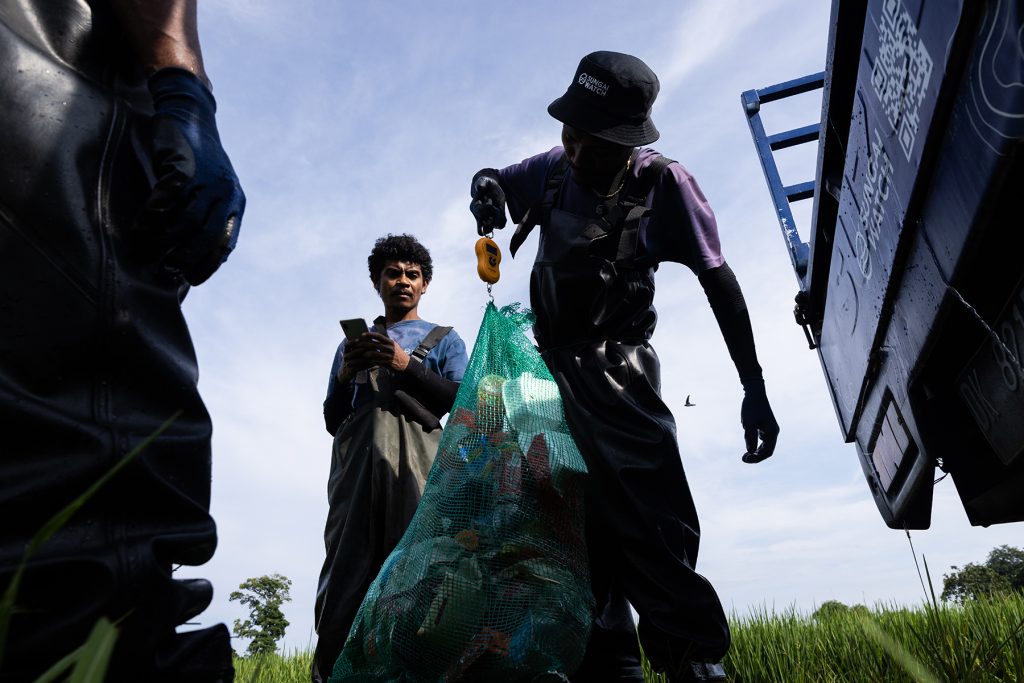
Bali - Plastic Paradise 10
Members of the NGO, Sungai Watch, weigh plastic waste collected from the urban rivers of Denpasar in Bali, Indonesia.
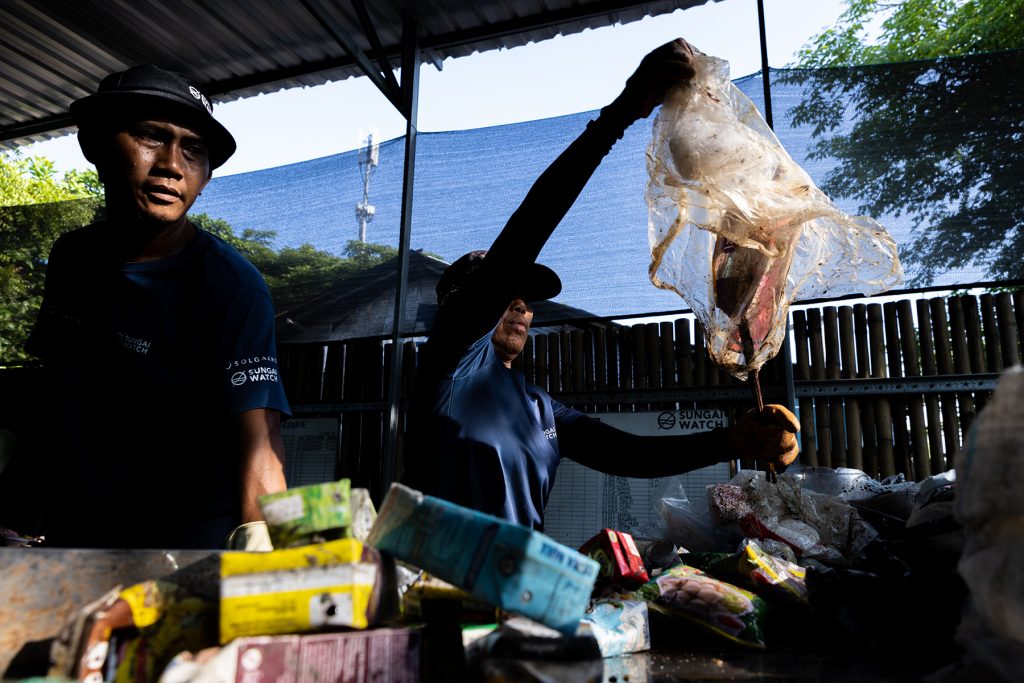
Bali - Plastic Paradise 11
A member of the Bali-based NGO Sungai Watch, sorts through plastic waste collected during a clean up on Kedonganan Beach. Teams of workers sort the waste, categorise it and prepare it for recycling when it will be turned into long-tern use plastic furniture.
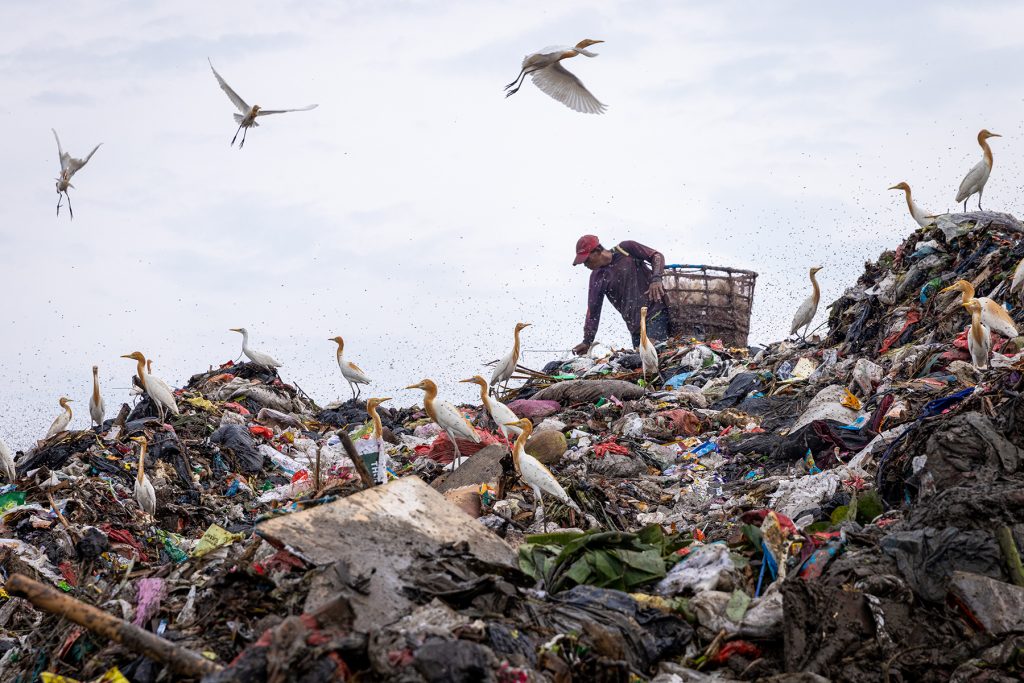
Bali - Plastic Paradise 12
A man collects items discarded in Bali’s main landfill, Suwung TPA, which is located in southern Denpasar, the capital of the island.
Just a few kilometres from all of the main tourist beaches, the landfill receives waste from all of the hotels, businesses and homes in the nearby urban area.
Tourism is Bali’s main economic driver, however the success and popularity of the island is coming at a severe environmental cost, as waste management becomes a serious issue.
